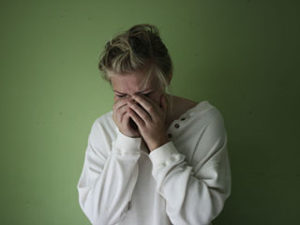
Photo by Kennedy Garrett
The magnitude of obesity as a problem for women is well documented. Thirty-five percent of all American women exceed their ideal body weight by more than 20 percent – the definition of obesity – and a full 50 percent are overweight to some degree. Recent research and the experience of therapists specializing in the treatment of eating problems reveal that between 25 and 35 percent of these women were sexually abused as children and as many as 60 percent were victims of some form of sexual abuse – compared to 20 percent of the general population. Clearly, sexual abuse victims are over-represented among obese women, but is there truly a connection between the two problems? I, among others, have found that in most instances there is.
Compulsive eating frequently begins soon after sexual abuse occurs, and if women were already prone to turn to food to cope with hard-to-handle feelings, their eating problems worsen. In addition, the dates women begin their first of many, many diets often coincide with the time of their traumatic sexual experiences. And common reactions to sexual abuse – guilt, poor self-esteem, distorted body image, anxiety and a sense of powerlessness, to name a few – are virtually identical to those long associated with obesity and eating problems.
The true tragedy of this situation is that obese, over-weight and diet obsessed women who are also sexual abuse victims are almost always completely unaware of the connection. They believe that fat is the real problem that causes any other problems they might have and that losing weight is the ultimate solution which will remove all obstacles from their path, automatically remedying anything that is troublesome in their lives. They contribute more than their share to the 10 billion dollars spent each year on diet aids, 95 percent of which are ineffective. They are among the 20 million Americans who, on any given day, are desperately trying to lose weight and experience heartbreak and frustration when (like 90 percent of all men and women who successfully lose weight on diets) they gain back their weight within a year. Every well-meaning move they make, every diet failure they experience, and the social and psychological burdens they bear for being obese, add insult to injury, compounding the pain and anguish they originally encountered because of sexual abuse.
Women can free themselves of food obsessions and weight problems. These are the necessary steps:
Recognize and face your painful past experience.
Become more aware of what you eat and when, what you are feeling and why, and learn to differentiate physical hunger from emotional appetite.
Come to accept that you can live through unpleasant feelings instead of eating over them.
Develop communication, relationship and social skills.
Improve your body image.
Realize that your life is not a dress rehearsal and “get on with it” no matter what your present weight may be.
